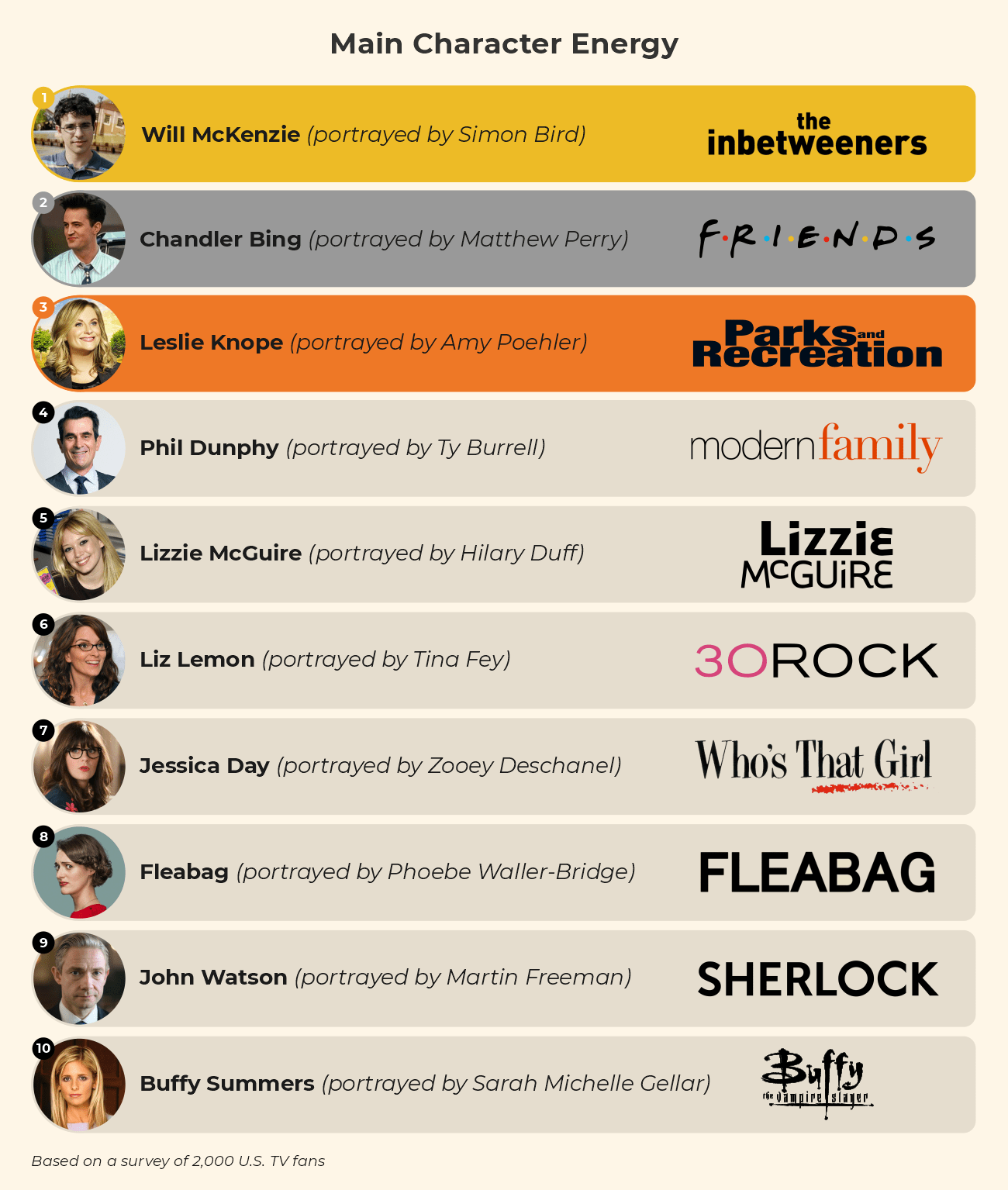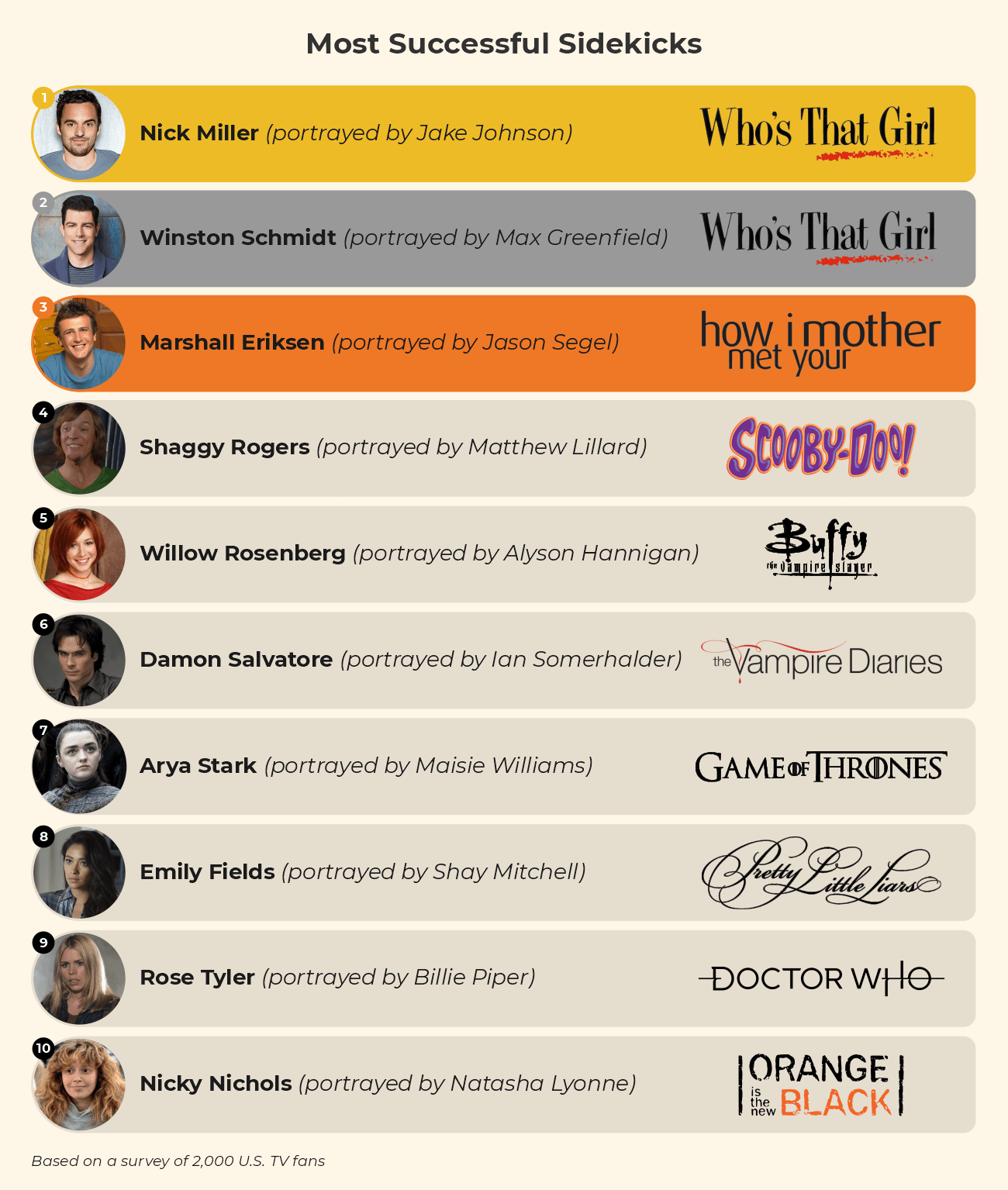The Most Relatable Pop Culture Characters Revealed
Whether you’re a die-hard F.R.I.E.N.D.S fanatic, an American Horror Story addict or a Modern Family maniac, it’s likely you have an onscreen character that you can relate to. TV shows are the perfect place to find a persona that you’re able to emphasise with or that you’re rooting for, and doing so can even help us navigate tricky situations in real life. But with so many big personalities portrayed on screen, how do we know which pop culture characters best convey how we feel and what we do day to day?
CasinoGuardian’s Pop Culture Character survey asked 2,000 U.S. TV fans which characters from iconic shows they most relate to, looking at both protagonists and secondary stars who deserve more of the spotlight. The survey also asked in which areas of life people feel the most-accurately represented on screen, and where people feel the least well-expressed.
Main Character Energy
It can be hard relating to main characters sometimes, either because they’re written to appeal to a wide range of audiences, or because they have to navigate bizarre situations that don’t actually occur in real life. But the survey reveals that there are main characters that the everyday fan can relate to – even if they spend every episode slaying vampires.

It turns out that the majority of people feel like an inbetweener, with Will McKenzie – from the British coming-of-age sitcom The Inbetweeners – coming out as the most relatable character for almost a fifth (19%) of respondents. The series follows a group of teenagers as they navigate the ages 16-19 at a new school, and sees McKenzie as the least popular of the four lead characters amongst peers, but also the most mature and level-headed.
Other British characters that made the top 10 most relatable characters were Phoebe Waller-Bridge’s Fleabag from the series of the same name, and Sherlock Holmes’ John Watson. The ‘dirty’ British comedy series Fleabag first appeared on BBC Three before being picked up by Amazon, and was a smash hit in America, becoming the first British show to win best comedy series at the Emmys.
What about the main characters that are the least relatable, then? The survey shows amongst the least-accessible main characters are Ross Geller (F.R.I.E.N.D.S), Walter White (Breaking Bad) and Ted Mosby (How I Met Your Mother).
Most Successful Sidekicks
So for those of us who can’t relate to a main character, can we see ourselves within a secondary character or sidekick? The survey certainly suggests so, with secondary characters coming out as almost twice as relatable as main protagonists (91%) amongst fans. And while it’s a shame that many of us clearly don’t see ourselves as having main character energy, it makes sense given secondary characters are often more ‘normal’.

It seems that New Girl is among the shows that has the best cast, with both lovable bartender Nick Miller and ambitious sales associate Schmidt making the top two most-relatable secondary characters. Also in the top 10 are iconic cartoon character and amateur detective Norville ‘Shaggy’ Rogers from the Scooby Doo franchise – best known for slacking and snacking – and brooding brother Damon Salvatore from The Vampire Diaries.
On the other end of the scale, the least-relatable secondary characters came out as Daemon Targaryen from the newest Game of Thrones instalment, House of Dragon, Joffrey and Cersei Lannister, and Dwight Shrute from The U.S. Office.
When it comes to which franchises fans are most likely to turn to when looking for advice or inspiration around how to deal with a real-life situation, the survey shows it’s F.R.I.E.N.D.S that people consider to be the most representative (perhaps due to its length and diverse storylines), followed by New Girl, Riverdale, and Modern Family.
Onscreen Representation
Relating to a character is all very well and good – even if they are a vampire, the devil reincarnate or a struggling teen – but how do TV writers do when it comes to portraying a genuine experience on screen? The survey asked various demographics about how they feel they’re represented on screen, to identify what’s missing in today’s TV.
It seems that the majority of us feel we’re best-represented when it comes to marriage, with almost half (47%) of respondents agreeing the marriages they see on screen bear some resemblance to theirs in real life. However, it seems that more needs to be done to accurately portray relationships and dating, with just a fifth (19%) saying they feel represented in that area. Sex is another area that needs improvement, with less than a third (29%) of people saying they’ve related to a saucy situation they’ve seen onscreen.
Women feel the least represented on screen when it comes to career (with 62% not feeling accurately presented here) and conflict resolution (51%), whilst men feel the least- represented around friendships (36%) and routine (29%). Younger survey respondents (those aged 18-25) feel the least-represented around hobbies (with just 21% saying they’ve related to a hobby shown on screen), and then their relationship with their family (19%).
It seems that there’s still work to be done when it comes to onscreen personalities generally, as the survey also found 1 in 10 people (9%) don’t relate to any characters at all.
As well as determining where TV is lacking around representation, the survey also asked which actors people feel deserve more recognition – either due to their relatable performances, or impressive credentials. The survey shows that the actor fans would most like to see rewarded this year is Evan Peters for his latest portrayal of Dahmer, followed by Sadie Sink for her work in Stranger Things, and Milly Alcock from House of Dragon.
Summary
Regardless of what TV shows have in store for us over the next year, it’s important to find joy in the things you watch on screen, particularly as we head into the colder months. Hopefully we’ll see better representation on screen over the next year for those who can’t relate to what they’re seeing in their favourite series, and we hope relatable characters continue to inspire tv fans globally.
